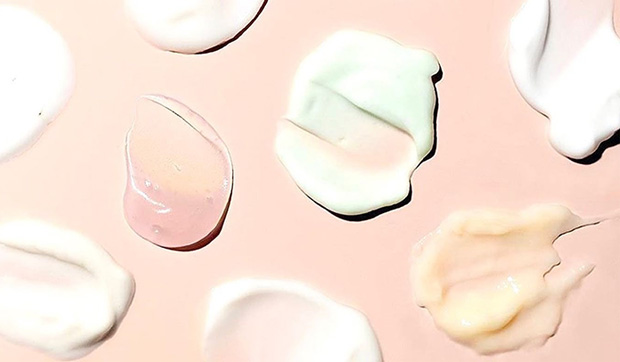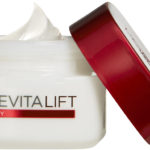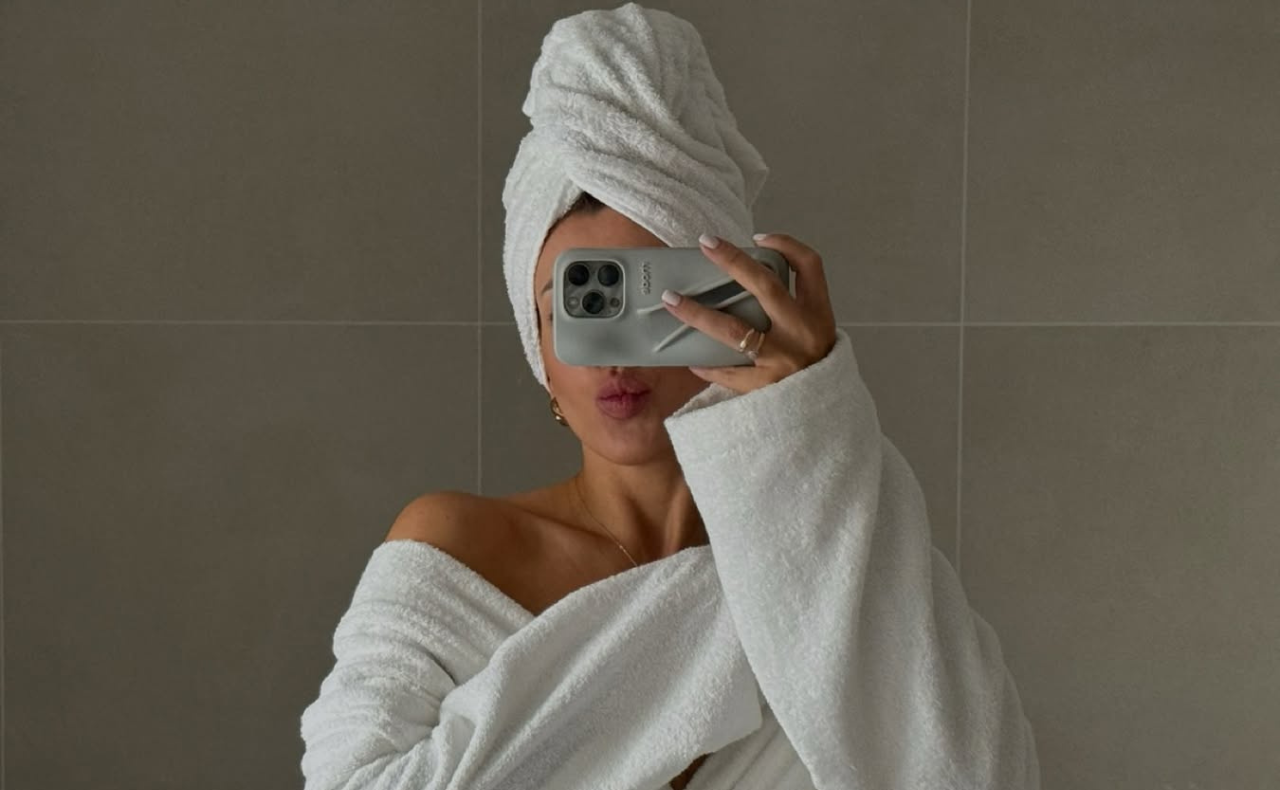Retinol, retinal, same-same… right? Not so much.
There’s a few differences between retinoids, retinol, retinal and retinoic acid (retin-A), and because we know how easy it is to get overwhelmed with skin care jargon and ‘magic’ ingredients, we’ve looked to an expert to help us make sense of it all.
Below, Dr. Ginni Mansberg, founder of ESK – Evidence Skincare, helps decode the difference between these forms of vitamin A, so you can know exactly what it is you’re looking at on the label.
RELATED: These are the skin care ingredients you shouldn’t mix
RELATED: Everything you need to know about vitamin C
Retinoids
Think of retinoids as the head of the vitamin A family. According to Mansberg, “Retinoids are a class of chemical compounds that are vitamers of vitamin A – an ingredient strongly linked to a myriad of skin repairing benefits, including anti-ageing.”
This includes the strongest, prescription only form, Retin-A or over-the-counter varieties which are your retinol or retinyl palmitate’s, the weaker forms.
Other types of retinoids you may have heard of could include retinaldehyde and tretinoin.
Retinol
Under the retinoid umbrella, sits retinol. Retinol is the most scientifically proven anti-ageing ingredient and easily the most popular form. As Mansberg says, “[it’s] widely accessible to consumers in a range of over the counter creams, serums and lotions”.
This specific type of retinoid is on the recommended list of almost every skin expert, and with decades of research behind it, there’s no question to why. It converts into an active vitamin A in two steps, while significantly reducing fine lines and wrinkles, fading pigmentation and improving skin elasticity.
bh recommends: Dermalogica Age Smart Overnight Retinol Repair, Paula’s Choice Clinical 1% Retinol Treatment
Retinol esters
Sometimes sensitive or reactive skin can become irritated by the retinol. Or if you’re new to retinoids, you may want to start out on a more gentle form. This is where we look to Retinol esters, a slightly weaker form of retinoids, as they convert to an active vitamin A in three steps.
These can include:
Retinyl propionate:
The most effective retinol ester, in high doses can be beneficial in reducing wrinkles and pigmentation
bh recommends: Olay Retinol 24 Night Moisturiser Cream Fragrance Free
Retinyl palmitate:
A weak retinol ester, which has shown benefits in sun damage.
bh recommends: L’Oréal Paris Revitalift Day Cream, Swissline Cell Shock Age Intelligence™ Youth Booster – Retinol + Retinyl Palmitate
Retinaldehyde
Also known as retinal. Just to confuse you.
This form converts into an active vitamin A in just one step, which makes it one of the more potent varieties. In fact, according to Mansberg, 20 times more potent than retinol.
This particular form works faster than retinol, and can be more effective in clearing acne, treating sun damage, and reducing wrinkles.
bh recommends: E.S.K’s Ultimate A+, $115 at eskcare.com
Retin-A
These are your prescription only forms of retinoids as they can hold some serious side effects.
As they are pure retinoic acid and there is no conversion process required, they are the strongest form of retinoids.
These forms are commonly prescribed for severe acne treatment. Tretinoin (the most widely prescribed retinoid), tazarotene (the strongest topical retinoid), and isotretinoin (which is the active ingredient in common acne medication Roaccutane).
Main image credit: @advancedskintechnology
Have you been confused by all the different vitamin A related products? Which form do you use? Have you tried different types?








Interesting and helpful article.
I didn’t know about ESK or Dr Ginny’s involvement. I stay clear of all types of this ingredient and stick to old fashioned manual exfoliation and vitamin rich natural oils.
Yes please more definitions on ingredients
Wow, I did know there were different forms of retinoids, but I didn’t know the difference. Very interesting.
Oh yes! Excellent guide. Want to try prescription one soon
I’ve used retinol & retinyl palmitate. I’m keen to give retinal a go – it’s been on my radar since I first heard about it.
Very imformative thanks! I’m using Skinceuticals 1% retinol which is quite strong. I think I’ll step it up to prescription retinoid when I hit my 40s
I think we all need to carry beauty dictionaries with us when we go shopping for skin care. So much to think about and choices to make.
Quite simply the most informative and well written article in BH. Well done.
Really good article, thanks BH!
Important info to help use the best products for your skin.
I have used the prescription vitamin A cream which works really well but it does make my skin sensitive.
There’s so much to learn. Thanks for this article – really interesting.
Thank You BH for the Informative Article on the differences in retinoids, retinol, retinal and retinoic acid (retin-A), so many Anti-aging Skincare Products have these in them in them these days.
Oh definitely Meedee Its so confusing because there are so many different names and forumulations. Its hard to know what is a bad ingredient or a good ingredient.
Good to know. some of those terms I haven’t come across yet.
Excellent super helpful guide – Thanks BH Xx
Good to know.
ooh so much to learn
Im sure there would be many beauty lovers that would by such a book as long as it was small enough to carry in your handbag. I think that would be awesome.
I didn’t realise there were so many types – I’d actually though they were different fancy names for the same thing really.. Ha now I know better! Great article. : )
Such a great simple guide to the retinoid family. Bookmarking this one to refer back to!
Great to learn about all the different kinds! I’ve started using a retinol serum a few weeks ago and have seen such a difference in my skin!
Very interesting information and explained well.Thanks BH.
A good clear explanation of what retinol are.
This article from SkincareEdit has a more complete list of products for various forms of retinoids.
https://theskincareedit.com/retinoid-vs-retinol
Good article. The Ordinary is not mentioned in this article, but the brand sells a variety of strengths and is a good place to start. I’d recommend The Ordinary’s Granactive Retinoid 2% emulsion for beginners, there’s no irritation. Those with drier skin may prefer the same ingredient/percentage in squalane.
Interesting information explained well for me.
Great article and easy to follow. Thanks.
I use Tretinoin! It costs pretty penny but works really well.
I swear I’ve learnt the difference between all these so many times and it doesn’t stick. Will have to refer back when I need to.
This article is really clear and short introduction to retinols!
Very interesting article
Great informative article on Vitamin A
Amen sister!! omg this is such a great idea. Someone needs to do this haha
I use tret & love it!
Another great informative article.
Thanks for the information 🙂
Thanks for making it clear
I would like to try an retinol ester as my skin is on the reactive/sensitive side.
Imagine how many of us just from beautyheaven would buy a copy. Then think of other beauty lovers and not only here in Australia. I think it would hit the beast sellers list almost as soon as it hit the shelves 😀
Exactly! It would easily be popular. Just little pocket book would be good. You’re onto something! Haha
Now see if I had the knowledge i would jump on it and probably end up making a bit of money 😀
Nice article, BH!
I have just been using the Arden retinol caps
A useful article and easy to understand
Interesting and good to know…
I should try retinaldehyde for sun damage
I’m starting to get these creams as gifts so I need this information…one has to accept these things….:(
Thanks for the information